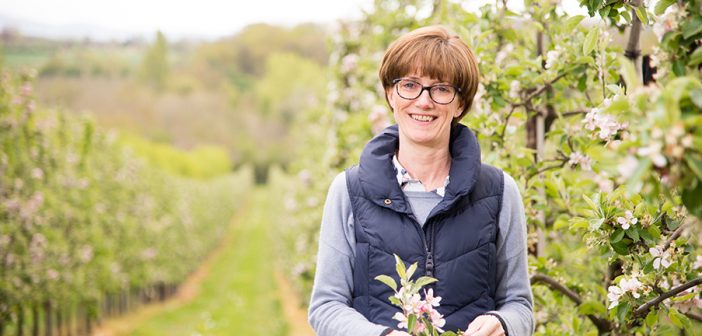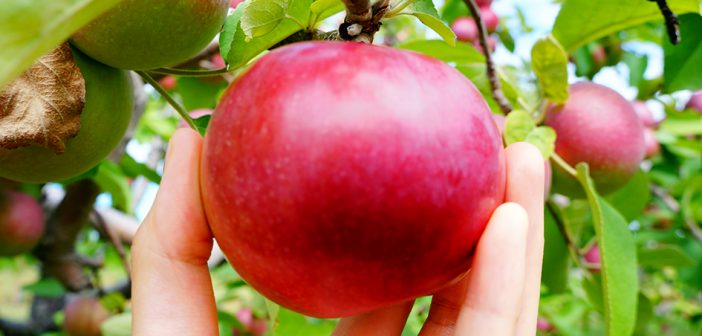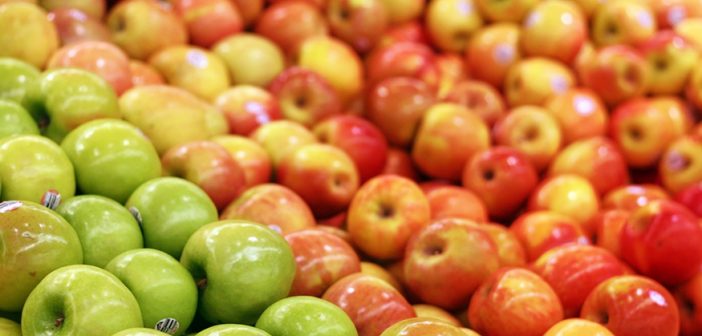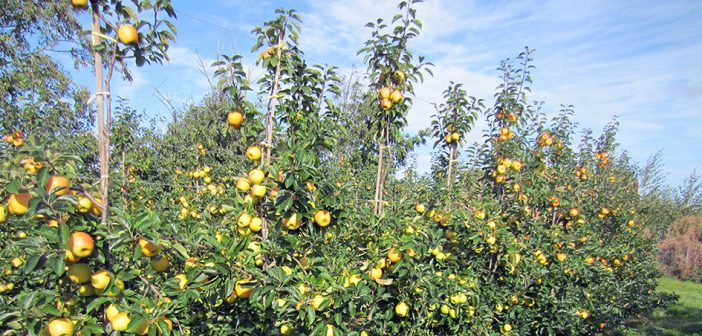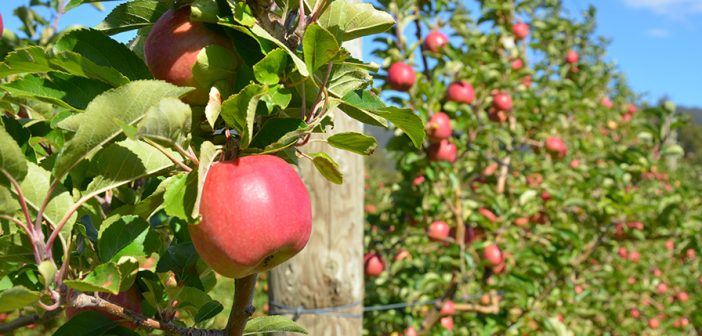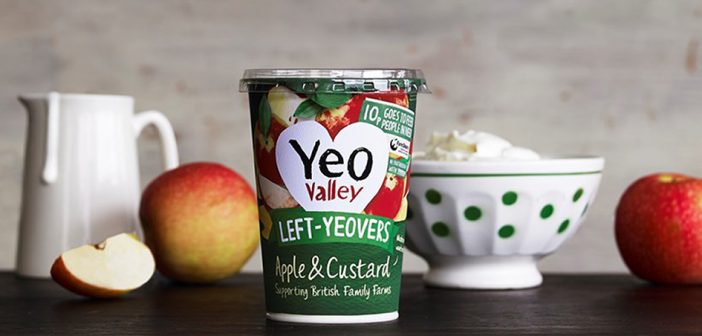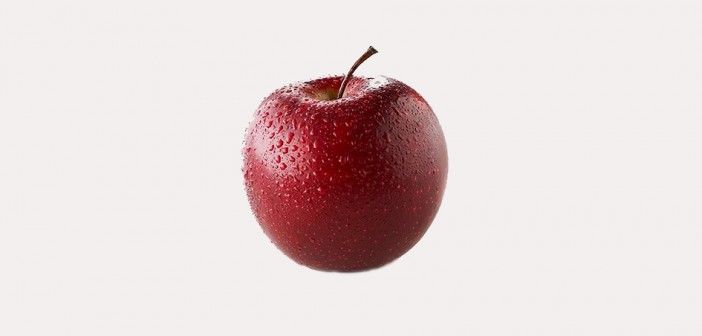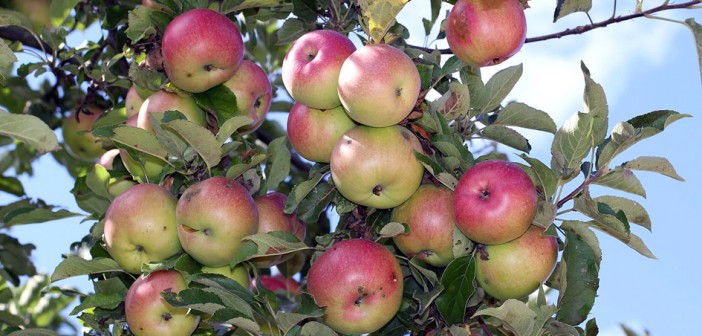A new series of experiments at Brogdale, funded by the National Fruit Collections Trust, aims to test the theory that future changes to the UK’s climate could be beneficial for apple production.
Professor Paul Hadley of the University of Reading, and an NFCT Trustee, said, “Climate change is affecting top fruit already. Our data shows that apple varieties are now flowering on average 17 days earlier each spring than 60 years ago. There are pros and cons to changes to apple flowering and harvest times, but these are likely to change the face of apple growing and lead to different varieties of UK fruit on supermarket shelves in the UK. This research will enable both professional growers and gardeners to learn how to adapt production techniques to cope with possible changes in the climate, and also identify varieties which are suitable for the UK’s future climate.”
The experiments will be carried out in a new 0.6 hectare facility under polythene covers, with trees of more than 15 varieties of apple. The varying conditions produce diverse flowering and harvest times, as well as growth habits and winter chill requirement. Earlier blossom and harvest times may affect fruit quality and storage potential, but how significant these changes will be is not yet known.
Tim Biddlecombe, of the Fruit Advisory Service Team and Secretary to the National Fruit Collections Trust, added, “Over the last 20 years, growers have been adapting to earlier seasons, but it is important to understand the implications if this trend continues. Obvious changes like earlier flowering could increase the risk of damage from frost during blossom, while earlier harvest would provide English apples to consumers earlier in the year and so extend the marketing period for UK apples.”
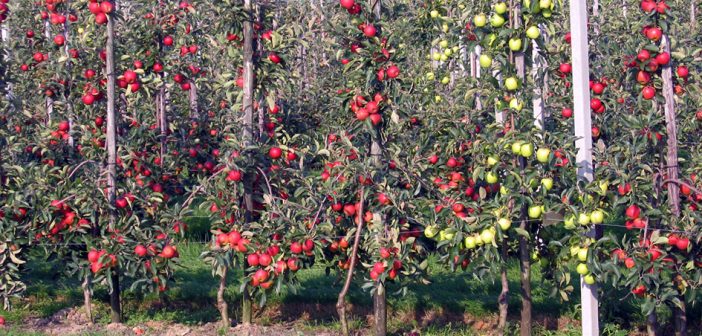
Photo Credit: Wikimedia The post Climate change could benefit UK apple production appeared first on Hort News
